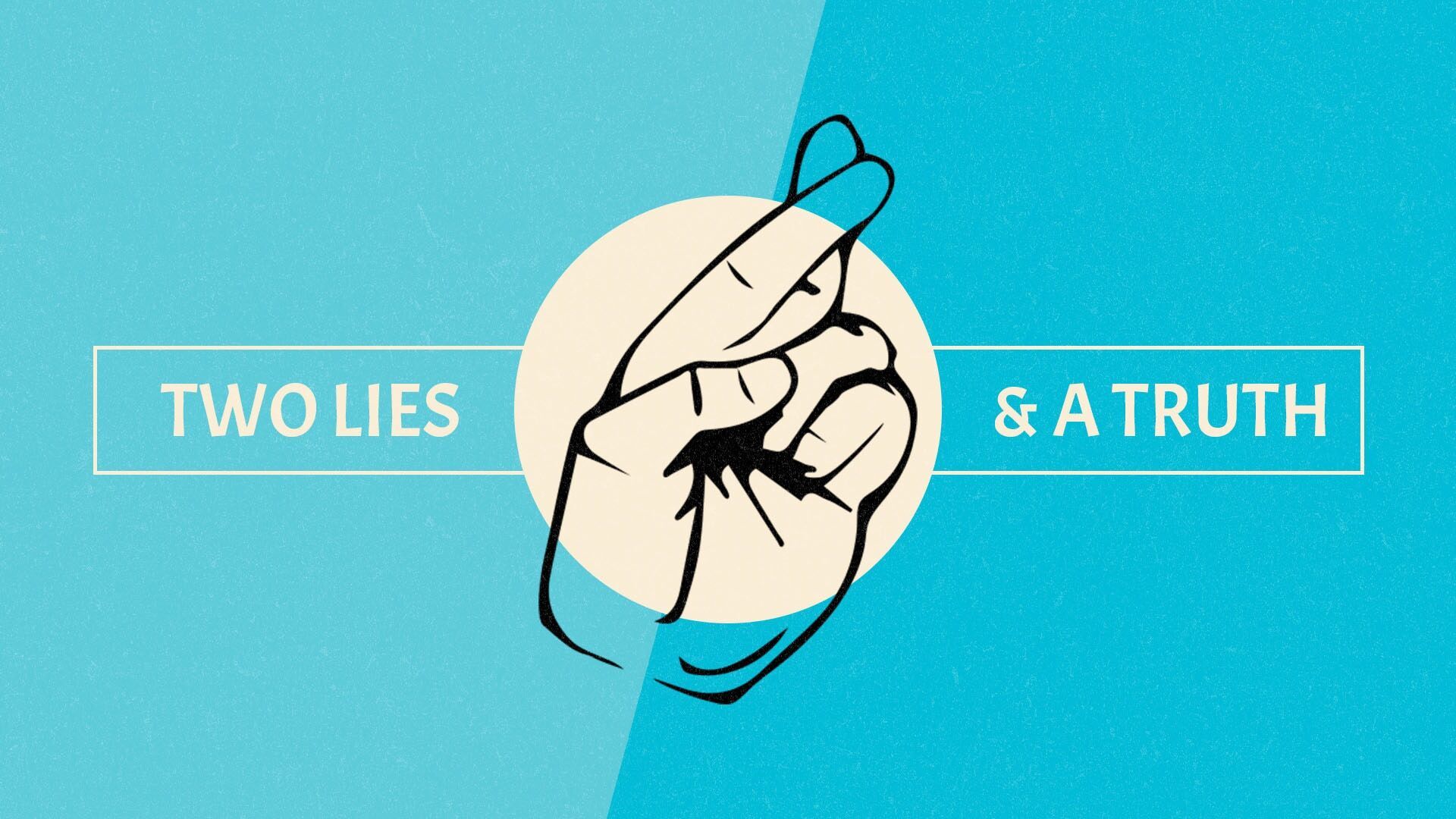Sexual Assault (2 Samuel 13:1-22)

Big Idea: Understand the horror of sexual assault, as well as God’s care for his people in distress.
Rachael Denhollander is an American lawyer and former gymnast. She was the first woman to publicly accuse Larry Nassar, the former Michigan State University and USA Gymnastics doctor, of sexual assault.
Denhollander said Nassar sexually assaulted her when she was a 15-year-old gymnast. She came forward 16 years after Nassar first abused her, which led to hundreds of other women to come forward with similar allegations against him.
In asking the judges to impose the maximum sentence on Nassar, Denhollander said, “How much is a little girl worth?” She answered her own question: “These victims are worth everything … I plead with you to impose the maximum sentence under the plea agreement because everything is what these survivors are worth.” The judge commented that Denhollander was “the bravest person I have ever had in my courtroom.”
Denhollander is worth reading. She’s written a book called What Is a Girl Worth?: My Story of Breaking the Silence and Exposing the Truth about Larry Nassar and USA Gymnastics which is an important read. I’m taking her advice today. I didn’t want to preach this sermon, but something that she said stood out to me. She does not advocate for women to become pastors, but she does perceive an imbalance between the way leaders treat the issue of women’s roles and the way they approach sexual abuse.
“I would like to see pastors preach sermons on sex abuse as frequently as I see them preach on how women should be quiet and submissive,” she said.
“I would like to see pastors preach sermons on sex abuse.” She’s right. We cannot be silent about something that is so evil, pervasive, and damaging.
Our definition of sexual assault is any type of sexual behavior or contact where consent is not freely given or obtained and is accomplished through force, intimidation of violence, coercion, manipulation, deception, or abuse of authority.
It’s difficult to determine rates of sexual abuse because so many incidents go unreported, but it’s estimated that at least 1 in 4 women and 1 in 6 men will experience sexual abuse in their lifetime, in many cases when they are children. In most cases the perpetrator is male, usually known to the victim. Most incidents are not reported.
The CBC recently conducted an anonymous survey of more than 4,000 students across Canada between the ages of 14 and 21. The survey found that more than 1 in 7 girls say they were sexually assaulted by another student. A quarter of girls were inappropriately touched while at school. The statistics are alarming.
If you have been sexually assaulted, you are not alone. You’re not alone in this room. You are not a statistic. You are not a number. There are others who have walked through a similar experience to what you’ve been through. Sexual assault is often very isolating. It brings feelings of shame and isolation. I want you to know right up front that you are not alone. You are not isolated. I also want you to know that God cares about what happened to you. The Bible has something to say on this subject.
I have two main goals in this message. The first is to comfort and encourage victims of sexual assault by working through a biblical account of the experience of a sexual assault victim and by showing the renewing and healing power of the gospel. My second goal is to equip us as a church to counsel and care for those who have suffered sexual assault.
So let’s look at the passage we just read. We’re going to learn two important lessons, and then I’m going to ask one important question.
One: Sexual Assault Causes Great Damage
The story before us is a difficult one to read. This is truly one of the most disturbing stories in the entire Bible. It took place when David was king of Israel approximately three thousand years ago. It recounts how Amnon, David’s son, sexually assaulted his half-sister Tamar.
We read in verses 1 and 2:
Now Absalom, David’s son, had a beautiful sister, whose name was Tamar. And after a time Amnon, David’s son, loved her. And Amnon was so tormented that he made himself ill because of his sister Tamar, for she was a virgin, and it seemed impossible to Amnon to do anything to her.
The Hebrew word for virgin means a young woman of marriageable age who was presumed to be a virgin, and her virginity was to be protected. That’s probably why Amnon couldn’t get access to her. Not only that, but he was prohibited by God’s law from having sex with his half-sister in a number of passages (Leviticus 18:9).
But Amnon developed a scheme with the help of a friend who’s identified as a crafty man. He feigns illness and asks the king to send Tamar to bring him food. And when Tamar arrived, Amnon dismissed everyone from the room. She begged him not to attack her. We read in verse 14, “But he would not listen to her, and being stronger than she, he violated her and lay with her.” As soon as he had violated her we read, “Then Amnon hated her with very great hatred, so that the hatred with which he hated her was greater than the love with which he had loved her.” The insight into human nature is profound here. It was never really about love; this comment reveals how different sexual assault is from God’s design for sex.
What Amnon did is completely against God’s design for sexuality. Sexual intimacy is given to us as a gift to be enjoyed by a husband and a wife. It’s meant to reaffirm their commitment to each other. Sexual assault perverts God’s designs for sex. It’s no wonder that sexual assault is so destructive. In this passage we see Tamar trapped (vv. 5–11), ignored (vv. 14a, 16b), raped (v. 14b), despised (v. 15), banished (v. 17), and ruined (vv. 18–19, 20b). She feels shame (v. 13), and the damage is perhaps even more devastating because it happens within her family.
In verses 18 and 19 we read that she was wearing a long robe with sleeves. After the assault, she puts ashes on her head, tears the long robe, lays her hand on her head, and cries. The robe marked her as a virgin daughter of the queen. Her actions express her mourning and distress, her changed status. She’s lost something that can never be regained. She’s experiencing pain, shock, shame, humiliation, and an extreme sense of loss. Sexual assault shatters a victim’s sense of worth, dignity, and beauty.
Every act of sexual assault robs its victim of the agency that belongs to them. As a person made in God’s image, sexual assault renders its victim powerless and defeated. Sexual assault can crush a person’s sense that their choices make any difference.
The effects of sexual assault are devastating. As one book puts it:
Sexual assault is not simply an event that happened to you, ended, and now is over. It can have an impact on every aspect of your life—your faith, your daily attitudes and emotions, your self-image, your relationships, and your sexuality. These are not just past issues but remain very real and current …
Research shows that sexual assault causes harmful psychological effects that are more severe than effects of other crimes, both for men and women. The effects vary, but they are devastating. Sexual abuse is a form of trauma, and can lead to responses like denial, shame, guilt, anger, distorted self-image, and despair.
And that’s not all. This assault unleashes a tragic division in David’s family so that it will never be the same. Sexual assault doesn’t just damage the victim of the assault. Beyond the individual are secondary survivors: friends and family who too are impacted by the assault and who are devastated by its effects.
Sexual assault causes great damage. It rips apart God’s design for our sexual flourishing and introduces effects that ripple throughout the lives of the victim and beyond.
But that leads us to our second point.
Two: God Cares for the Sexually Assaulted
You don’t see any immediate resolution in this story. Actually, things get a lot worse. Verse 20 tells us, “So Tamar lived, a desolate woman, in her brother Absalom’s house.” Scripture refuses to give us easy answers to complicated questions. There’s no doubt that the results of this violation were devastating. To make it even worse, God is not even mentioned in this passage. It’s as if God is absent.
I don’t think this is an accident. Sexual assault survivors will often experience a feeling that God was absent. On October 29, 1964, one of my heroes, Helen Roseveare, was brutally raped.
On that dreadful night, beaten and bruised, terrified and tormented, unutterably alone, I had felt at last God had failed me. Surely He could have stepped in earlier, surely things need not have gone that far. I had reached what seemed to be the ultimate depth of despairing nothingness.
God often seems absent in the middle of such a horrible assault. That’s why we must look further to see the way that God has not abandoned those in need. We need to find where God is in our darkest hour.
God cares for the sexually assaulted in three ways.
First, he judges.
I want to highlight a passage from one of the earliest letters written to any church. 1 Thessalonians 4:3-6:
For this is the will of God, your sanctification: that you abstain from sexual immorality; that each one of you know how to control his own body in holiness and honor, not in the passion of lust like the Gentiles who do not know God; that no one transgress and wrong his brother in this matter, because the Lord is an avenger in all these things, as we told you beforehand and solemnly warned you.
This passage is about more than sexual assault. Paul’s writing about all forms of sexual immorality. In verse 6 he says that sexual sin — including sexual assault — takes advantage of others and causes harm, and he warns: God will avenge the victim. The perpetrator may never be brought to justice in this world, but God saw what happened and God will repay.
This is why we have the imprecatory psalms — psalms that seem to cry out to God to take violent action against wrongdoers. Why are these in the Bible? There are some evils that are so monstrous and detestable that it is only right to call out to God to bring justice. Romans 12:19 tells us, “Beloved, never avenge yourselves, but leave it to the wrath of God, for it is written, ‘Vengeance is mine, I will repay, says the Lord.’”
God judges. But that’s not all.
God cares.
One of the most precious promises of the Bible is found in Isaiah 42:3:
A bruised reed he will not break,
and a faintly burning wick he will not quench;
he will faithfully bring forth justice.
Isaiah paints a word picture as he describes God’s servant. In Matthew 12 we find out that he’s talking about Jesus. What does this word picture mean?
One of the key themes in this passage in Isaiah is justice. God knows that the world is not the way it’s supposed to be. When it says that he will bring justice, it’s saying that Jesus knows the way the world is supposed to be. He knows how human beings and society function best. He is bringing heaven to earth, reordering civilization, transforming this world into what it should be. We brought sin and destruction into this world; through Jesus God is restoring this world to what it should be. One day there will be no more sexual assault. One day justice will be done on the earth. That’s why we pray, “Your kingdom come, your will be done, on earth as it is in heaven” (Matthew 6:10).
But that’s not all this passage says. In the meantime, while we wait for this day, Jesus will not break a bruised reed or quench a faintly burning wick. Back in Isaiah’s day, a military ruler threatened to snap his enemies like a marsh reed. That’s not what God does. You may feel useless and beyond repair like a bruised reed; he will not break you.
You may feel like you’re near extinction like a smoldering wick. They used to braid flax together as a wick. When the flame started to smolder they just threw it out since it was no longer serving its purpose. But that’s not what God does. That’s not how God treats the vulnerable. He can mend what’s broken. He can fan into flame what’s almost extinguished. He can cure and supply. Jesus takes the little that remains and adds his life to theirs and gives them a new life, new hope.
We talked earlier about imprecatory psalms, psalms that cry out to God for justice. We also have songs of lament, songs that allow us to express our pain and even our anger to God knowing that he hears us and cares.
God is not absent. God judges, and God cares. There’s one more thing that I want to mention:
God removes our shame.
We’ve already seen that Hebrews 12:2 says, “ looking to Jesus, the founder and perfecter of our faith, who for the joy that was set before him endured the cross, despising the shame, and is seated at the right hand of the throne of God.”
Jesus didn’t just die for our sins. Jesus suffered the most shameful death imaginable. Jesus entered into our shame and bore our shame to deliver us from shame. He bore our shame, so we could be freed from shame.
Diane Langberg writes, “I will never encounter anything that He has not borne. He came in the flesh and entered into and bore our darkness, alone, forsaken. He who is light has invited me to enter some of that darkness with Him as my constant companion.” God doesn’t provide simple answers; he provides something far more profound. He enters into the darkness with us and walks with us.
And that’s only a small sample of what the Bible offers. There’s so much more.
In Tamar’s story, God is not mentioned, not even once. But God was not absent despite all appearances. He “has not hung out a vacancy sign over his universe or his people” (Dale Ralph Davis). He will judge what has been done to those who have been sexually assaulted. He will avenge them. He hears their cries and covers their shame. He is tender and gentle to those who are hurting. He will restore justice to the world. Jesus himself entered into our world of shame so that he could deliver us from our shame. He has not abandoned us.
I told you earlier that God often seems absent in the middle of sexual assault. That’s how Helen Roseveare felt when she was assaulted. In the darkness, though, she started to feel God’s presence.
She later pointed to God’s goodness despite this great evil:
Through the brutal heartbreaking experience of rape, God met with me—with outstretched arms of love. It was an unbelievable experience: He was so utterly there, so totally understanding, his comfort was so complete—and suddenly I knew—I really knew that his love was unutterably sufficient. He did love me! He did understand!
She also wrote:
[God] understood not only my desperate misery but also my awakened desires and mixed up horror of emotional trauma. I knew that Philippians 4:19, “My God will supply every need of yours according to his riches in glory in Christ Jesus,” was true on all levels, not just on a hyper-spiritual shelf where I had tried to relegate it. . . . He was actually offering me the inestimable privilege of sharing in some little way in the fellowship of His sufferings.
Sexual assault causes great damage, and God cares for those who have been sexually assaulted. God is the stronghold of the poor and needy in their distress, a shield around his people. He is their glory and the lifter of their heads. He executes justice for the abandoned and the oppressed.
Let me close today by asking a question.
How Can We Care for Those Who Are Victims of Sexual Assault?
One of the reasons we have a protection policy in place for our children is because we want to do everything possible to prevent the abuse of children in our care. That is an important step, and we need to take it.
But what about those who may have come to our church as victims of assault? Churches should be a refuge for those who have experienced abuse. But, too often, survivors haven’t found the protection they deserve and the care they need from the church.
Whenever someone discloses sexual assault to you, it is an act of courage. Simply listen. Don’t minimize or deny what happened. Acknowledge it. Resist the urge to compare it to something you’ve been through, or to provide answers or advice. Be careful not to ask probing questions. Your need to know is of far less importance than the victim’s need to share what they are able. Honor that person with your presence and with your care.
Diane Langberg gives us some good advice:
Your main task is to listen well … You will need to put your own fears and questions aside for the moment. You are giving them a safe space to tell a frightening and often shame-ridden story at their pace. The purpose of listening is to honor the teller in a safe place so that you may begin to grasp in some measure what it is like to be them. Let them know that what they are doing is courageous and is the right thing to do. They are speaking truth and dragging darkness into the light. Abuse silences victims and renders them powerless. Listening makes room for their voice and restores dignity. And frankly, they have honored you by coming to you. You have been seen as safe—as a shepherd is meant to be—when they feel most vulnerable. Keep in mind that their vulnerability has already been exploited. Let them know you want them to be safe too and you want to help them get the care that they need.
Mostly, remind the brother or sister that they’re not alone. They are not alone in what they have suffered and are suffering. God is with them and you are with them. Reassure the brother or sister of your love for them and God’s love for them. It may be appropriate to encourage the victim to consider speaking to other people who can help including a physician, mental health professional, or even law enforcement. If the victim is a minor, report the assault to the authorities. In Ontario, everyone, including members of the public and professionals who work closely with children, is required by law to report suspected cases of child abuse or neglect.
If you’re overwhelmed by their story or situation, remember the power of your presence. Your main job is to listen and to care. You don’t need to have any answers. You can just be present and love.
Our response is a reflection of the gospel. We welcome others, including their pain, because Jesus welcomes us, including our pain. Let’s all come to him.
Lord, you are the refuge of those who seek you. You are the protector of the defenseless. You deliver us, and even when we feel abandoned. We know you are there and you are faithful.
We thank you for pouring out your love for us and proving your love for us on the cross. We thank you for the guarantee of all your promises through Jesus’ cross and resurrection. We pray, Father, especially for the most hopeless in our midst, that you would let them sing for joy. We cry out to you, our refuge, our stronghold, and our Savior. In Jesus’ name, Amen.





